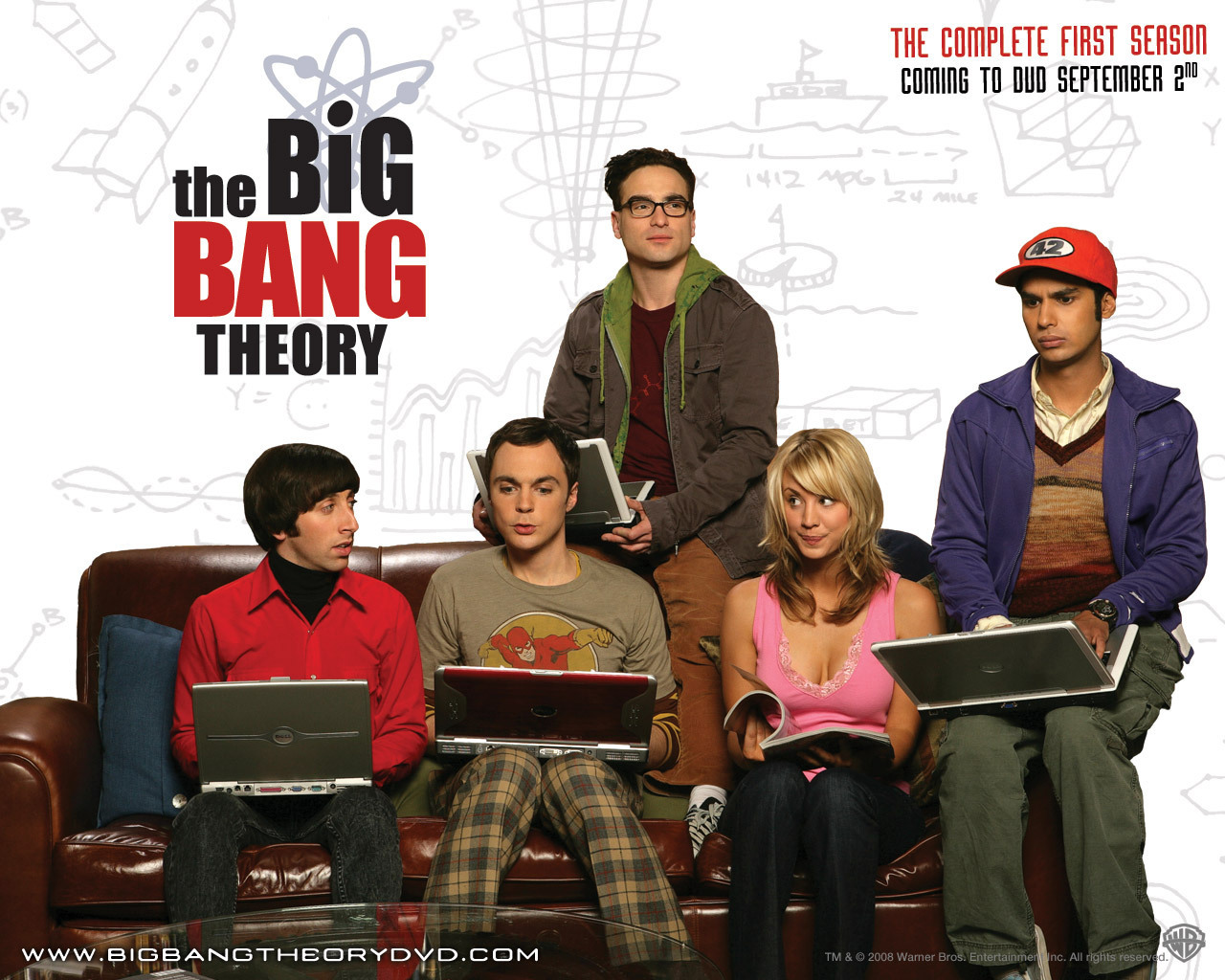For Uses and Gratifications, I will be writing about The Big Bang Theory, an American sitcom about four scientists and their next door neighbour Penny. I believe that this show applies this theory well amongst its audience.
Personal Identity
The Big Bang Theory applies the use of personal identity amongst their audience, which consists of a younger audience of fairly intelligent people. The audience identify themselves as intelligent, because the show's rather uncommon vocabulary and the dialogue being based around jargon of the protagonists' occupations is occasionally understood by them, giving the audience a sense of satisfaction because "they must be smart", due to their ability to understand the "big words" used in the show. The Big Bang Theory is not aimed as much at genuine scientists. This is because if it was, the use of actual jargon of the scientific profession would be too difficult for the main audience to comprehend, instead making them feel "stupid" and pushing them away from the show, excluding them. The show's goal is not to be scientifically or politically correct, but to make their audience feel smarter and more superior for understanding the "science" and "geek" jokes, which is why the scientific dialogue is simplified to achieve this effect.
Information
The Big Bang Theory includes many references to popular culture, and both past and current events within their gags and jokes. It allows those who already knew of the event to relate to the characters of the show, and inform those who were not aware of the event mentioned. The characters of the TBBT are 'geeks', so news related to comics, gaming and science are the topics most often covered. It again allows those who are involved in such hobbies to relate to the characters, and inform those who are not aware of the topics as much. Penny's role in the show is to be 'stupid' so the other characters would explain the topics to her in a more 'simple' way. This is used to also explain the topic to the audience, so they may feel like they also have a part in the conversation.
Entertainment
The audience of The Big Bang Theory watch the show for its ability to entertain them, as it gives them an emotional release. This is done by belittling Sheldon, Leonard, Penny and the other characters to give the audience a feeling of superiority. The smarter characters are laughed at by the laugh tracks for their hobbies, as their interest in things such as comics and games for children are the gags themselves. Penny, on the other hand, is ridiculed for not being able to understand the scientific jargon, and her exclusion from the group for this and for working in a low wage job is also a running gag of the show. Of course, both of these examples are not the best way to deliver entertainment, as it makes those who can relate to the characters for the same things these characters are ridiculed for, feel belittled as well. However, the show is in fact aimed at those who wish to feel smarter and this is entertaining to such an audience because the show is bullying the characters in their behalf, so the desired audience doesn't feel guilty for this.
Social Integration
The Big Bang Theory's coverage on topics such as recent scientific breakthroughs and events within geek culture give the audience an insight onto topics they don't usually find on the headlines of papers and news programmes. This 'underground' knowledge gives the audience an insight into topics they would normally ignore or not understand, making them feel and seem more intellectual to those involved in the conversation. The Big Bang Theory is a currently running programme on E4, a popular British channel with a large, young audience; allowing conversations about the show itself popping up amongst groups of friends. It makes sense that a member of such a group would tune in to watch this programme after it being mentioned or recommended by friends, as its plot focuses on outcasts of society, an uncommon and unique plot amongst television programmes (which also maintains successful). The plot is seemingly broad and may give off many expectations to a new viewer.
Construction, Selection, Mediation
TBBT is filmed in a sitcom, episodic style, and in front of a live audience. Most of the story takes place in Sheldon's and Leonard's apartment and the overall apartment block, but it's actually a built filming set, and not a real apartment. Existing bloopers prove that certain scenes are selected to make the final cut. The mediation of individual episodes usually varies depending on the events within the storyline, but the overall idea remains: the protagonists and the juxtaposition of their geeky and socially awkward personalities versus the desired characteristics within the society they inhabit is the main mediation of the plot, with Penny acting as a representation of the latter.
